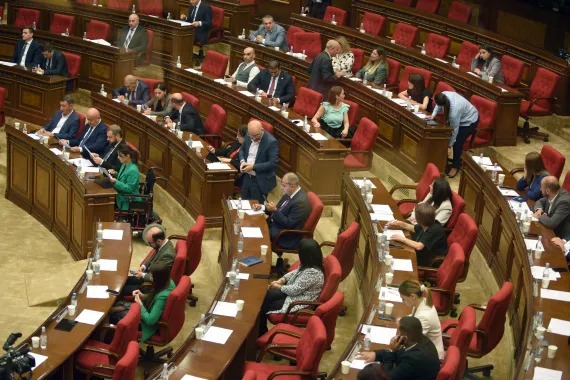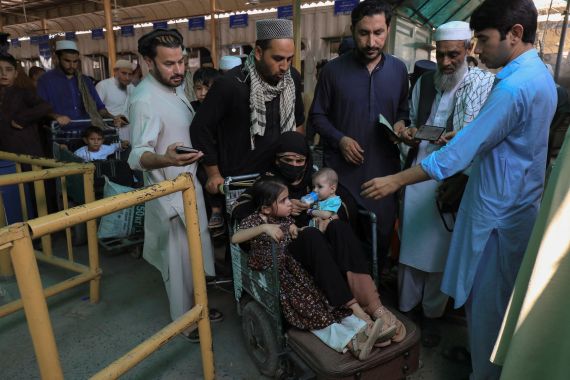In a daring move that is bound to intensify tensions with its long-standing ally, Russia, Armenia’s parliament has voted in favor of ratifying the International Criminal Court’s (ICC) founding Rome Statute. This significant step brings Armenia under the jurisdiction of the ICC, sparking consternation in Moscow, particularly due to the ICC’s outstanding arrest warrant for Russian President Vladimir Putin. The decision, which reflects the growing rift between the two nations in the wake of Russia’s invasion of Ukraine and Azerbaijan’s takeover of Nagorno-Karabakh, has left the Kremlin labeling it as “incorrect” and raising concerns about President Putin’s future visits to Armenia.
Armenia’s Defiant Move
Armenia’s parliament made a bold statement on Tuesday as 60 deputies voted to ratify the Rome Statute of the ICC, while 22 voted against it. This move opens the door for Armenia to become a member of the International Criminal Court, a decision that not only asserts its commitment to global justice but also has far-reaching geopolitical implications. By subjecting itself to the ICC’s jurisdiction, Armenia is signaling its determination to address what it perceives as war crimes committed by Azerbaijan, especially during the long-standing conflict between the two nations.
Russia’s Strong Opposition
Russia’s reaction to Armenia’s ratification of the ICC’s founding statute has been anything but conciliatory. The Kremlin, which has traditionally been a staunch ally of Armenia, has expressed vehement disapproval, labeling the decision as “incorrect.” Dmitry Peskov, the Kremlin spokesman, stated on Tuesday, “We would not want the president to have to refuse visits to Armenia for some reason.” Russia’s concern is primarily centered around the ICC’s arrest warrant for President Vladimir Putin, issued in March over alleged war crimes in Ukraine and the illegal deportation of Ukrainian children to Russia. This warrant places Putin in jeopardy if he were to set foot on any territory under ICC jurisdiction.
Strained Moscow-Yerevan Relations
The ratification of the ICC’s founding statute by Armenia underscores the deepening divide between Moscow and Yerevan. Tensions have escalated in recent times, fueled by Russia’s military involvement in Ukraine and its perceived inaction during Azerbaijan’s successful recapture of Nagorno-Karabakh, a region that had been under the control of ethnic Armenians for three decades. Armenia’s leadership, particularly Prime Minister Nikol Pashinyan, has increasingly sought to diversify its foreign relations, hosting joint military exercises with US forces and expressing doubts about its reliance on Russia for security.
Armenia’s sense of abandonment by Russia was further exacerbated by Azerbaijan’s blockade of essential supplies to Nagorno-Karabakh, a situation that Russian peacekeepers did not intervene to alleviate. This growing disillusionment with Moscow has pushed Armenia to take this bold step towards the ICC.
Despite Russia’s voiced frustration and criticism, Armenia maintains that its decision is a necessary step to address alleged war crimes committed by Azerbaijan. However, it’s important to note that the ICC’s jurisdiction will not apply retroactively. The ratification process will take 60 days to come into effect, leaving ample time for diplomatic maneuvering between Armenia and Russia.
In conclusion, Armenia’s decision to join the International Criminal Court has introduced a significant element of complexity into its relations with Russia. While Yerevan sees this as a vital step towards seeking justice for past conflicts, Moscow perceives it as a direct challenge, especially concerning the ICC’s arrest warrant for President Putin. The diplomatic landscape in the South Caucasus region remains in flux, and the repercussions of Armenia’s bold move are yet to fully unfold.
















